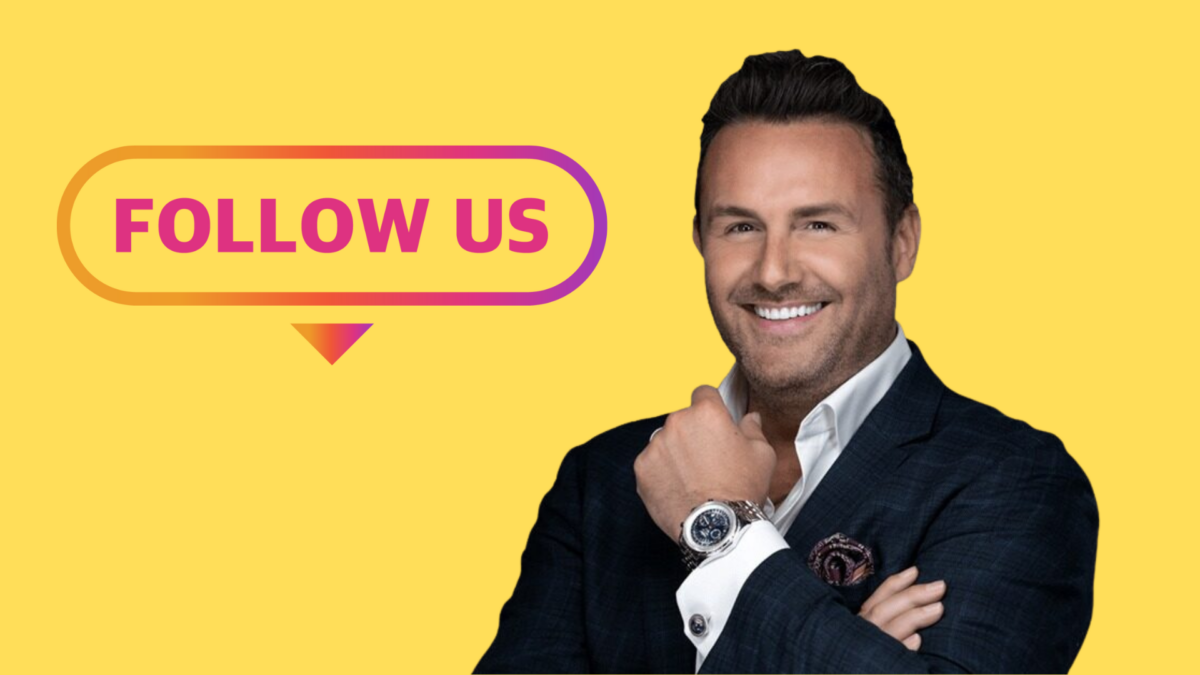
Host of Dropping Bombs podcast and CEO of LightSpeed VT dropped a knowledge bomb on a recent episode of Dropping Bombs podcast. Host, Brad Lea commented on the importance of developing a personal brand for C-Suite Executives.
When talking about the importance of creating a personal brand, Brad stated:
“People don’t follow brands they follow people. So your personal brand is ultimately what’s going to tee up doing business.”
In short, Brad believes everyone should develop a personal Brand for their business, no matter what business you’re in.
With over a half million social followers and hundreds of thousands of monthly podcast downloads, Brad knows a thing or two about how to leverage a personal brand.
Here are Brad Lea’s tips on getting starting creating a digital brand presence.
Brad Lea’s Step By Step Advice to Create a Personal Brand:
Let the world know who you are
Get on the big 6 social media platforms and put yourself out there; share your thoughts, opinions, values, beliefs. Don’t just repeat what everyone else is saying.
Don’t be afraid to be polarizing, not for the sake of confrontation, but for the sake of confronting the elephant in the room as it relates to your industry.
But that can often be scary, that’s where tip #2 comes into play…
Don’t be afraid of what other people think
The biggest reason Brad says executives are not active on social is they worry too much about what other people think. Especially on social media where anyone can leave a comment or offer a difference of opinion.
Remember, not everyone will agree with you but that doesn’t matter. You’re goal is to connect with those who do.
As Brad says” “if you never feel the hate, you never feel the love.”
Now for the last and final tip.
Continue to push out content over time
While the actual amount of time will depend on your individual business and circumstances, for a small to medium-sized business, a strong content marketing strategy generally takes between six and nine months to yield real results.
These are just a few of the tips Brad Lea shared in a recent podcast episode. Watch the full clip below.
WATCH:
About Brad Lea:
Brad Lea is the founder of Lightspeed VT, the most advanced training platform on the market. Soon-to-be billionaire and host of the Dropping Bombs Podcast, Brad Lea built LightSpeed VT into a multi-million dollar global tech company from scratch.
As its Founder and CEO, his vision led to LightSpeed VT becoming the world’s leading interactive training system, a system that he’s proud to share with others. In addition to being a CEO, Brad is also the author of The Real Deal.
Brad has helped generate millions for countless companies and individuals, including heavy hitters Tony Robbins, Zig Ziglar, Grant Cardone, Tom Hopkins, World Series Poker, Top Chef, Chase Bank, and so much more. He’s also been featured in Forbes, The Huffington Post, Inc. Magazine, GCTV, and is a regular guest on several top-rated podcasts such as The $ales Podcast, Success is a Choice and The Inner Changemaker.
For more information visit tylerhayzlett.com



